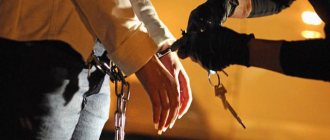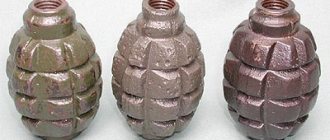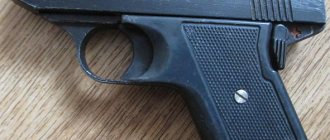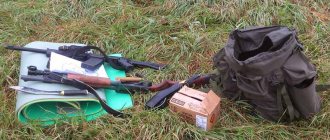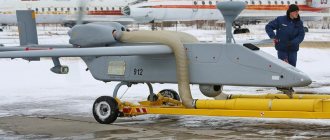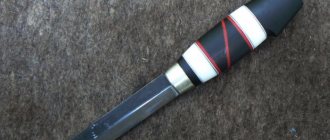“You can achieve more with a kind word and a gun than just a kind word,” these words are attributed to the legendary gangster Al Capone. But not only gangsters and other representatives of the criminal world want to have weapons.
Weapons are not so much an offense as they are a defense. In countries where there are many weapons, people are less likely to kill each other, UN statistics show.
There are 195 officially recognized countries on our planet. Of these, barely a tenth supports the right to freely bear arms. We tell you how this system works in different countries.
USA
The Second Amendment of the US Constitution back in 1791, when it was necessary to defend against Indians and potentially protect independence from the British crown, enshrined the right of citizens to bear arms. 2.5 thousand legal acts and laws of individual states make certain adjustments.
The Second Amendment reads:
A well regulated Militia being necessary to the security of a free State , the right of the people to keep and bear Arms, shall not be infringed.
The 2008 District of Columbia v. Heller case is also important. Then the US Supreme Court officially recognized that the Second Amendment protects the right to use weapons for self-defense.
Additionally, in 2010, the Supreme Court, in McDonald v. Chicago, prohibited states from enacting stricter gun restrictions than federal law. Since the US has a precedent-based system, this put an end to many disputes.
In the United States, you can buy long-barreled weapons from the age of 18, and short-barreled weapons from the age of 21. Giving children rifles and shotguns to celebrate their coming of age is a normal practice.
They buy rifles before. For example, special “small” 5.6 mm Crickets cost about $100 and are designed for children 5-12 years old:
In 43 states, you don't need a license to buy a gun. 46 has no restrictions on the number of barrels. In 44 states, an owner can freely sell a gun to another person.
In most states, only those convicted of a criminal offense or any other charge with a prison sentence of at least 1 year, as well as people with a conviction for minor domestic violence, are prohibited from purchasing weapons. They will not sell the gun to someone who is a fugitive from justice, is mentally disabled, was dishonorably discharged from the military, is on drugs, or has renounced his U.S. citizenship.
In terms of the number of weapons per capita, the United States ranks first in the world rankings. But it is very difficult to say exactly how many guns there are in the country, because there was no requirement to register weapons purchased before the introduction of the NFA (National Firearms Act) in 1982.
There are statistics according to which there are 120 weapons per 100 people , or 393 million for 326 million inhabitants. Surveys show that 43% of households own guns.
All states allow concealed carry of weapons - everywhere except in the areas of schools, courts and other special areas. You can openly carry a gun in about half the states. Permit conditions and prohibitions vary from state to state.
Every year in the United States, guns are used for self-defense more than 100 thousand times. Since the 90s, the number of crimes involving weapons has decreased by 30-40%.
Typically, it is Democrats who champion tightening gun control in the United States, but Americans are in no hurry to disarm. They believe that it is not the weapon that kills, but the person. Therefore, all attempts by the authorities to restore order come down to limiting the availability of automatic weapons (means of mass executions) and more stringent checks of buyers.
The Second Amendment will probably never be repealed. The owners of the 400 million dollar arsenal simply will not allow this.
Yemen
A permit to own firearms is not required here: hunting rifles, revolvers, rifles and even machine guns fall under the 1992 law. Argumentation is a legitimate defense. The result is 52.8 weapons per 100 people .
In general, about 62% of the Yemeni population owns weapons. The civilian arsenal is over 15 million firearms for a population of 28.5 million.
True, to carry weapons in cities, you need a license. Receipt rules depend on the specific city. In rural areas, you can carry weapons freely.
But you need to understand that a revolution took place in Yemen in 2011, and since 2014 there has been a civil war . In fact, the authorities have not really controlled the availability of weapons among the population for ten years.
In the caches of some residents you can find anti-tank guided missiles and armored vehicles. It’s quite easy to buy such things in the country – if you have the money, of course.
Closing the license
Now it is clear what the punishment for an expired license for a traumatic weapon is in Russia. If this document has ceased to be valid, it must either be renewed or abandoned. Leaving the “trauma” at home, as some people advise, is prohibited. It is a crime.
To close a license you need to:
- Collect documents for weapons.
- Write an application to cancel the previously mentioned paper.
- Submit a written request to the Ministry of Internal Affairs.
- Hand over the weapon (for destruction or to a consignment store).
Only this procedure will help avoid additional attention from government agencies. This is normal. All traumatic weapons are registered and observed under special control.
Canada
Canadians can buy their first gun at 18 years old. And if children over the age of 12 hunt to feed their family, then even earlier - this is typical for indigenous northern peoples. There are 34.7 weapons per 100 people here .
However, before purchasing you need to obtain a PAL - possession and acquisition license. This document is updated every five years.
PAL will be issued after completing a safety course and passing exams, several interviews and checks. But in general, nothing is impossible.
Regular PAL applies to popular sporting rifles and shotguns. There is also an RPAL license for the purchase of weapons with stricter storage requirements, such as a pistol.
Automatic weapons and some types of military equipment, long-barreled pistols are prohibited for civilians. They will also not sell you guns with more than 5 rounds of centerfire, or pistols with 10 rounds or more.
Following the terrorist attacks in Nova Scotia, Prime Minister Justin Trudeau declared more than 1,500 guns prohibited as of May 1, 2020. The ban affected mainly assault rifles and other self-loading weapons, but in general did not deprive citizens of the opportunity to buy and use other types of weapons.
Guns in Canada must be registered. Documents are needed for all guns, including collectibles, sports and hunting ones.
In general, weapons are purchased mainly for hunting and sport shooting . The issue of self-defense in Canada is not so acute.
You can't just carry a gun in Canada. But there are special permits for wearing in the wild - to protect yourself from animals.
How to re-register a traumatic pistol after death
1) How many heirs are left after your father?
2) did you, after your father, formalize an inheritance for anything and receive a certificate of the right to inheritance?
3) Did you live with your father on the day of his death (which of the heirs was registered with the father on the day of his death)? 4) Has anyone renounced an inheritance (in writing from a notary)?
5) In what shares and to whom was the inheritance left from the father registered? 5) Do you have a permit for an inherited type of weapon? 1) How many heirs are left after your father?
2) did you, after your father, formalize an inheritance for anything and receive a certificate of the right to inheritance?
3) Did you live with your father on the day of his death (which of the heirs was registered with the father on the day of his death)? 4) Has anyone renounced an inheritance (in writing from a notary)? 5) In what shares and to whom was the inheritance left from the father registered?
2.
Israel
at war since its founding , allows citizens who live in the Palestinian territories to openly carry even assault rifles. In addition, taxi drivers and bus drivers, jewelers and teachers, and representatives of other dangerous, socially significant or monetary professions have weapons.
A license to purchase weapons can be obtained from the Ministry of Internal Affairs. Those who have served in military or civilian service can receive a document at 21, other citizens - at 27, non-citizens - at 45. In addition, you need to live in Israel for the last three years and pass a number of checks.
You will also have to take a course in handling weapons and shooting in extreme situations. The exam and paperwork usually takes about 4 hours and 40-70 rounds of ammunition fired. The license is renewed every three years.
Soldiers carry their weapons on and off duty. Girls on the beach in swimsuits and with machine guns are a stern necessity, because you can’t trust anyone with your weapons. Almost all other license holders can also carry their weapons - concealed and open.
In 2020, gun ownership rules in the country were further simplified. Thus, reservists (officers and commanders with training level 07) do not have to return the license and the weapon itself after completing their service. For infantrymen, former police officers and emergency services personnel, licensing procedures have also been shortened.
The measure is designed to increase the number of people who will be able to legally carry weapons. In 2020, there were 6.7 civilian weapons per 100 people , or 557 thousand for a population of 8.3 million.
Minister Gilad Erdan stated:
The more highly qualified civilians who carry weapons, the greater the chance of preventing a terrorist attack, avoiding casualties, or reducing their number.
Indeed, terrorist attacks in the country have been repeatedly thwarted by passers-by, tourists, school teachers and other civilians. With neighbors like Israel, military weapons in capable hands are a dire necessity.
Switzerland
Until 2011, perhaps the safest country in Europe required military personnel to have military weapons at home . Then it became voluntary: you can store guns at home or at a local storage facility.
The thing is that the Swiss Guard is formed on the principle of the police. Because of this, it is convenient for reservists to keep pistols, grenades, assault rifles and other weapons at home.
Reservists are issued an automatic assault rifle SIG SG-550 and 50 rounds of ammunition for it. After retirement, you can buy back your machine gun, but it will be converted into a self-loading carbine.
True, if you keep your weapon at home, you will have to regularly participate in shooting practice. Many people are lazy, so standard weapons are sent to storage.
The result of this policy is 27.6 guns for every 100 people . At the same time, 0.54 murders per 100 thousand inhabitants are committed annually in the country. In Russia – about 7 (2017 data).
Self-loading weapons are sold freely. But there are also nuances. For example, once a year the police check how you store it. And if a weapon is stolen and a crime is committed with it, the owner will also be held accountable.
In 2020, in a referendum on new gun control measures common to all EU countries, residents voted in favor of tightening the rules. Switzerland is not a member of the EU, but is a member of the Schengen Agreement, and therefore must comply with European standards.
But for now, conscripts and reservists can carry their standard weapons completely freely. Other residents can obtain permission to do this from the cantonal authorities (in practice, they are issued mainly to private security, but formally everyone has a chance).
In general, in the country, weapons and the ability to shoot them are considered a pillar of national security. And in the Alpine cantons, hunting is very common. And the Swiss authorities, taking this into account, are seeking special conditions from the EU.
How to inherit a hunting rifle
Some time ago, after the death of a good friend, a passionate hunter during his lifetime, his adult daughter turned to me for advice. After the death of her father, she inherited hunting rifles: smoothbore and rifled. The daughter of a deceased acquaintance, as well as her husband, are not hunters, however, they would like to keep the weapon for themselves, as a memory of a loved one. Initially, the heiress wanted to leave everything as it was; she was not too willing to deal with the re-registration of weapons, considering it unnecessary red tape, and insisted that hunting rifles are sometimes stored in a safe for years after the death of the former owner.
The heiress’s husband objected that by saving time now, in the future one could get a serious problem in the form of administrative liability for illegal possession of smooth-bore weapons and criminal liability for rifled weapons.
Czech
The country is part of the EU, but so far the rules here are not as strict as in other European countries. For example, an ordinary citizen can obtain a license to carry a concealed weapon and carry up to two weapons, immediately ready to fire - with cartridges in the chambers.
Czechs consider the ability to legally own a gun to be as much an embodiment of freedom as free elections and freedom of speech. Only the communists and the Nazis introduced bans on all this.
There are 12.5 weapons per 100 people in the country . 807 thousand trunks are registered, fewer are illegal – 516 thousand.
Now there are discussions around tightening the rules: the Czech Republic must comply with EU rules, but does not intend to limit the rights of its citizens. Authorities want to recognize gun ownership as a national security issue. This would take the issue beyond the scope of the EU directive.
Austria
The Waffengesetz Law divides weapons into several categories depending on their danger. Without a firearms license, from the age of 18 you can buy weapons of categories C and D, including rifled barrels, rifles and burst shotguns. Pistols and self-loading weapons are sold from the age of 21 and only with a license.
There are actually a lot of nuances with registration; this is beyond the scope of this article. But, for example, antique weapons made before 1871 do not require a license or registration at all.
The country's arsenal is 30 weapons for every hundred people , or 2.5 million for a population of 8.5 million.
In general, Austria has no reason to defend itself from anyone - it just happened historically . An interesting point: the country does not distinguish between open and concealed carrying of weapons.
If you want to get a pistol, you will have to obtain a Waffenpass permit to carry a weapon and carry it in such a way as not to create inconvenience to others. For example, if you are seen with a weapon in your waistband in a public place, the police may be called.
About documents
Do you need a license for a traumatic weapon? Documents requested by government agencies during initial or repeated paperwork play an important role. There is no serious paperwork involved in implementing the process. Some problems may arise when passing the medical commission, but nothing more.
So, if a person has an expired license for a traumatic weapon, he must bring with a statement of the established form:
- passport;
- medical certificate;
- certificate of completion of training in a special institution;
- photographs (2 pieces, size 3x4);
- military ID (for men);
- hunting license (if we are talking about hunting weapons);
- old license.
It would be enough. Usually citizens make do with the first 4 papers. They are submitted to the relevant registration authority along with:
- permission to purchase weapons (especially when obtaining a license for the first time);
- receipt of payment of the duty (100 rubles);
- weapon insurance;
- spent cartridges in special packaging.
In addition, a citizen must submit his weapon for inspection to the Ministry of Internal Affairs. All accompanying documents issued upon purchase will have to be attached to it.
Denmark
From the age of 16, a Danish resident can obtain a weapons license for hunting and sport shooting. After two years of active membership in a shooting club (but not before turning 21), you can apply for a license to carry
Allowed types are all barrels with a caliber up to 9 mm, as well as some large calibers. The carry permit is renewed every 5 years.
Carrying firearms in public places is prohibited. But there is a concept of proportional self-defense: if you are attacked with a weapon, you can defend yourself with your gun.
There are 9.9 weapons per 100 inhabitants in Denmark . More than half are registered.
Where to go
The first question that a citizen has is: “Where should I go if my license for a traumatic weapon has expired?” It is advisable not to delay its extension. But where is this operation performed?
Today, citizens can bring their idea to life in the following bodies:
- district department of the Ministry of Internal Affairs;
- MFC (in some regions);
- portal "Government Services".
More and more often, the population is using the latter scenario. Nevertheless, appeals to the Ministry of Internal Affairs still have good demand among citizens. This is the fastest, simplest and most effective solution.
Estonia
Since 2001, adult Estonians can buy and carry concealed pistols (smoothbore, pneumatic and gas). A license is issued after passing an exam at a shooting course. They can take it away for committing crimes, for example, if they are caught drunk driving.
Separate requirements apply to collectors. You can store military weapons at home, however, if the collection includes more than eight guns, you will have to equip a weapons room with an alarm.
The legalization of weapons was introduced for safety and has already borne fruit. The staff of the Estonian police was halved, the murder rate decreased five times. Less than 100 people in the country die from gunfire every year. A significant part are suicides.
Latvia, Lithuania and Moldova have introduced similar measures. As a result, the number of serious crimes has been steadily declining.
The country has 5 weapons per 100 inhabitants. 47 thousand units are registered, about 18 thousand are kept illegally.
Brazil
All Brazilians from the age of 25 can own weapons for self-defense and hunting . Only machine guns and heavier weapons are prohibited.
Licenses are issued by the police. Obtaining it will cost $350, renewal every three years will cost about $30.
You can freely carry weapons in rural areas. In cities you need to obtain a separate permit. In practice, this is difficult unless you work, for example, in a security company.
A population of 200 million has 15-18 million weapons in their hands, of which barely half are legal. Per 100 inhabitants – 8.3 units.
In a 2005 referendum, 60% of the country's residents opposed a ban on the sale of weapons and ammunition. But the situation in the country is very difficult. Murders from firearms in Brazil occur every 7-8 minutes. More than 60 thousand people die this way every year.
There are several large arms factories operating in the country. 80% of the production is exported, but a significant portion soon returns illegally to Brazil.
The current president of the country, Jair Bolsonaro, signed a decree in 2020 that simplified the purchase and storage of weapons - the police were prohibited from rejecting most applications for licenses. The decree was soon canceled due to conflicts with other norms, but the president made it clear that he would not back down.
Mexico
The rules are established by Article 10 of the country's constitution and the 1972 federal law. To obtain a permit to own a weapon, there are a number of non-standard requirements. For example, you need to have official housing, a job and a confirmed income, and have a “letter of an honest lifestyle” certified by your employer or the mayor.
The country allows revolvers up to 38 caliber, self-loading pistols up to 9 mm caliber, sports and hunting weapons. There are even more options for rural residents. For example, rifles up to 22 caliber are allowed, as well as shotguns up to 12 caliber with cartridges up to 635 mm long.
The amendments of 1971 and 2004 seriously limited the carrying of weapons in public places: it became not a right, but a privilege. Now you need a separate license, which is issued by the Secretariat of National Defense. It is almost impossible for city residents to get it.
In rural areas this is easier. Local communities here often take up arms in defense against criminal gangs .
Finally, there is exactly one legal gun store in the country. He works at a military base in Mexico City and sells up to 40 weapons a day. At the same time, up to 600 units are smuggled from the United States every day.
There are 12.9 guns per 100 Mexican residents. Of the 17 million units, only 3 million are registered.
Error 404
This is possible for the following reasons:
- the page you are trying to call does not exist
- the page you are trying to access has moved or been deleted
Try using the site map, forum map, or search form to find the section you're looking for.
We recommend reading: How to write a petition for an employee so that he is not fired
Guatemala
The right to bear arms is enshrined in Article 38 of the constitution, adopted in 1985. Only self-loading weapons are allowed, such as shotguns, pistols, rifles, shotguns. The country followed the example of the United States and, like the States and Mexico, enshrined the right in the constitution.
To legally purchase a gun for personal use, government approval is required. The license to carry will have to be renewed for 1-3 years, depending on the type.
About 2 million of the country's 17 million population own weapons, 500 thousand of them legally. There are 12 units per 100 people . But any judge can demand that a resident of Guatemala surrender his weapons, and he will have to comply.
Responsibility
It is important to understand that the delay of any document entails certain consequences. Liability for an expired license for a traumatic weapon is often expressed by a fine. This is an administrative violation that does not scare the population too much.
How is such a scenario punishable? The fine for an expired license for traumatic weapons in Russia today ranges from 3 to 5 thousand rubles. The exact amount is determined individually.
In addition, the citizen will have to either close the license or renew it after paying the invoice. Sometimes there are exceptions to the rules - delay is punishable by a regular warning. A fine is not always issued, but very often.
Iraq
In 2012, the country's authorities relaxed laws on gun ownership, and in 2018 they simplified their carrying. A license is still required, but obtaining one is quite simple - they are issued by local police stations.
With a license you are allowed to carry self-loading weapons for hunting, self-defense and sport shooting. Automatic weapons - like everywhere else, only for the military, police and intelligence services.
Let us remind you that civil wars have been going on in the country since 2003 . Formally, the war with the banned terrorist organization Islamic State ended in 2020, but conflicts arise regularly.
The number of unregistered weapons in the country is growing. According to 2020 data, this is 7.6 million units per 39 million population, approximately 20 trunks per 100 people .
Submitting an application
Do you need a license to purchase traumatic weapons? As soon as a person submits an application in the prescribed form to the Ministry of Internal Affairs, he will have to “sit at his desk” for a while. What does it mean?
Each citizen undergoes a small certification. It usually consists of 10 questions related to storing and carrying traumatic weapons. All knowledge will be obtained in the courses. Usually there are no problems with the exam. Sometimes certification is carried out directly at the educational institution, after which the citizen is given a certificate of successful completion of a training course in the use of traumatic weapons.
Pakistan
For Asian countries, the legislation here is quite flexible. You can carry a weapon if you have a license; the ban applies only in public places, for example, in schools, hotels, courts, fairs or meetings.
There are also fewer restrictions on the type of weapon: for example, assault rifles are allowed. In general , the country's gun culture is strong , and if you go to the north-west of the country, you will see many people who carry machine guns completely legally.
Per 100 people – 22.3 weapons. In total, there are 6 million legal guns and 38 million illegal ones in the country.
Philippines
To carry a weapon you need a license. The chance that it will be extradited largely depends on the argumentation and profession.
Licenses are mainly issued to media representatives, bank employees, cashiers, doctors and nurses, engineers, and religious figures. But an ordinary citizen can also receive a document if he proves that it is necessary for self-defense.
There are 3.6 weapons per 100 inhabitants. There are approximately equal numbers of legal and illegal.
What about this in Russia?
Without collecting certificates and permits in Russia, you can buy pepper and gas sprays, gas pistols up to 4.5 mm, stun guns up to 3 kW, knives that do not fall under the definition of edged weapons, pneumatics up to 7.5 J and cold models. The rest is only with permission.
Legal maximum: 2 units of limited-death firearms (firearms with limited destruction - short-barreled ones like pistols and barrelless ones, for example, the Osa travmat), 5 rifled, 5 smooth-bore, 5 pneumatic with a muzzle energy of 7.5-25 kJ.
When buying a knife, you can focus on these requirements:
If you are over 18, you can buy a hunting rifle and other smooth-bore weapons , a gas or traumatic pistol (and the knives and weak air guns mentioned above). Before purchasing, you need to obtain a special license from the Russian Guard: it is called LOPA - (by the letters of the series) for OOOP, LGa for smoothbore, LPa for pneumatics with muzzle energy from 7.5 KJ and LOa for gas pistols, etc.
To obtain a document, you will have to collect certificates (pass a drug test, undergo a psychiatrist examination, a medical examination, obtain certificates 003О-у and 002О-у), take courses and pass an exam - theory and practice of handling weapons. It is also necessary to buy a safe and obtain an inspection certificate from the OLRR of the Russian Guard.
How many weapons you plan to buy, the number of licenses you need. You will have to pay a state fee for each one. It is profitable to submit an application and pay through government services - they will provide a 30% discount, pay 1,400 rubles instead of 2 thousand.
■ For OOOP ■ For hunting long-barreled smoothbore weapons and pneumatics ■ For rifled weapons
The license is valid for six months: if during this time you did not manage to buy a weapon, you will have to issue the document again.
When you buy a weapon, you can get a ROH - permission to store and carry. Through government services - 350 rubles instead of 500. ROCha is valid for 5 years.
To purchase a rifled weapon, you will have to wait at least 5 years after receiving a smoothbore license. Or receive the title of Master of Sports in shooting. What if it turns out faster?.. In any case, you will have to collect certificates again, obtain a purchase license, permission to store and carry.
But if you are not an athlete, you can only buy long-barreled rifled weapons (the same Saiga carbine) and store it in a safe at home. Moreover, you will have to prove that you are a hunter - present a hunting license.
Athletes are also allowed pistols and revolvers. But they will have to be stored only in a sports club.
But an ordinary Russian citizen will not be able to legally buy an assault rifle or a submachine gun. Such guns are only for law enforcement agencies and the army.
Buying a weapon without a license is as dangerous as selling it. For illegal smoothbore or LLCO they can give up to 15 days , and also impose a fine of 3-5 thousand rubles . Weapons and ammunition will be confiscated.
You can carry a long-barreled smoothbore (for example, a hunting rifle) around the city only separately from the magazine and/or cartridges. It is allowed to load it at a shooting range, at a shooting range or while hunting.
A magazine can be inserted into injuries and other OOOPs, but the cartridge should not be in the chamber. The weapon must have the safety on, if it has one.
Finally, you cannot carry weapons with you to rallies, churches, bars, restaurants, shopping centers and other public places. Neither hidden nor open. There are ambiguities in the legislation on this matter, but it is better not to risk it.
If you are found in possession of a knife that an expert examines recognizes as a bladed weapon, or you violate other rules for storing limited-edition guns, long-barreled smoothbore guns or ammunition for them, this is Article 20.8 of the Code of Administrative Offenses of the Russian Federation: it faces a fine of 500 to 2 thousand rubles. For more serious offenses, they can be given up to 4 years in prison and a fine of up to 80 thousand rubles (Article 222 of the Criminal Code of the Russian Federation).
Drunk people cannot carry even a legal firearm - a fine of 2 thousand to 5 thousand rubles , the weapon can be confiscated.
At the same time, there are 12.3 weapons per 100 people in the Russian Federation - 10 times less than in the United States. In total, there are at least 17 million units in the country, of which 6.6 million are registered.
Documents for renewing a weapons permit
When applying for a service, you will need to collect the following documents (the list is established in clause 9 of Order of the Ministry of Internal Affairs of Russia dated May 5, 2012 No. 408 ):
- Statement. A sample and form will be provided at the licensing and permitting center.
- Passport.
- 2 photographs (3x4 cm).
- Medical certificate of form No. 002-О/у and 003-О/у. According to the order of the Ministry of Health dated June 30, 2020 No. 441-n “On the procedure for conducting a medical examination...” examinations are carried out by an ophthalmologist, a psychiatrist-narcologist and a psychiatrist.
- Hunting license and its copy, if the applicant decided to renew the permit for a hunting rifle
- Receipt for paid state duty.
- If the weapon is used for professional activities (hunting), then you will need an order from the head of the organization to confirm this.
Duration and cost of weapon renewal
Total
Gun laws most often have either a strong historical basis or dire necessity. In African countries, where photos of children armed with machine guns are often sent, there are a minimum of legal weapons. In Somalia, on average, there are 12 weapons per 100 inhabitants - approximately the same as in the Russian Federation.
And in general, all countries will grow and grow until the USA. 120 guns per 100 people is strong.
Buying and storing a weapon is usually one story (and license), carrying it is a completely different story. Even in those countries where everything is relatively simple with the purchase of weapons, they are prescribed to be used mainly for home defense.
Carrying weapons in public places is most often prohibited. But in Israel they did the opposite, and this became the basis of national security.
Finally, an interesting graph: in the USA, with its accessible weapons, the number of murders per 100 thousand population is consistently lower than in the Russian Federation:
( 68 votes, overall rating: 4.81 out of 5)

